
Palbociclib revolutionizes HR+/HER2- breast cancer treatment, enhancing outcomes with endocrine therapies and promising new combinations for better patient care.

Palbociclib revolutionizes HR+/HER2- breast cancer treatment, enhancing outcomes with endocrine therapies and promising new combinations for better patient care.

Probiotic supplementation in VLBW preterm infants reduces antibiotic resistance and promotes beneficial gut bacteria, enhancing neonatal health outcomes.

Simplifying complex information through illustrations and storytelling helps patients feel that managing their condition is achievable.

An expert shares how 340B puts independent pharmacies at a competitive disadvantage.

New research uncovers a pathway linking diabetes and heightened blood clot risks, paving the way for innovative treatments to prevent cardiovascular complications.

Research reveals that clinical stage significantly influences survival rates in HER2-positive breast cancer patients undergoing neoadjuvant chemotherapy.

Samantha Picking, PharmD, senior director of immunizations at Walgreens, discusses staffing strategies, digital tools, and operational improvements designed to streamline flu vaccination services during the upcoming respiratory season.
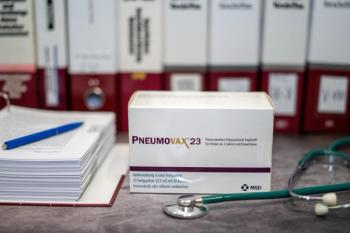
Case highlights the importance of careful cocumentation.

Signos CGM empowers users to manage weight effectively through personalized insights and real-time glucose tracking.

The development of multisystem inflammatory syndrome in children infected with SARS-CoV-2 was associated with more marked shifts in metabolic parameters, leading to increased cardiovascular disease risk.
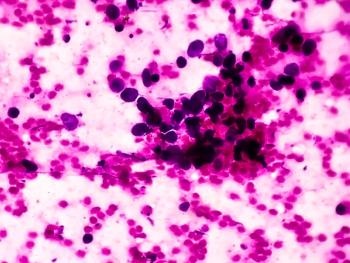
Both preclinical and translational evidence support MET inhibition as a therapeutic approach in patients with small cell lung cancer (SCLC).
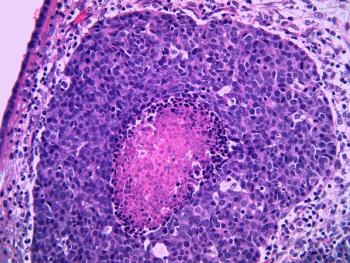
Enfortumab vedotin is one of many effective antibody-drug conjugates on the market that can be utilized to improve the treatment of urothelial carcinoma.
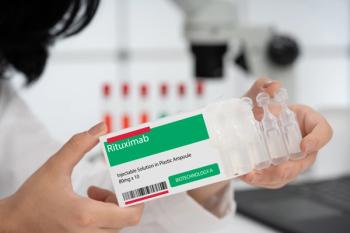
Study reveals rituximab outperforms cladribine in managing RRMS, showing superior disease control and improved disability outcomes.

Long-term obesity triggers aging biomarkers in young adults, linking excess weight to accelerated biological aging and chronic health risks.

New research reveals that immunoglobulin replacement therapy fails to lower infection-related hospitalizations in those with chronic lymphocytic leukemia (CLL), raising treatment concerns.

The complete response letter (CRL) stated that vatiquinone's new drug application (NDA) did not provide substantial evidence of efficacy and would need to be evaluated in a new trial.

The law has support from patients, health care providers, pharmacists, and the largest health insurance provider in the state.

Individuals with cognitive and physical disabilities faced difficulties in health care utilization and had reduced rates of preventive cardiovascular screenings during the pandemic.

Precision oncology has shifted, yet pharmacists’ roles remain underutilized.

Precision medicine transforms cancer care, enhancing patient outcomes through targeted therapies, yet faces challenges in community access and biomarker testing.

Christopher Lis, senior director at JD Power, shared key insights about the report and what the pharmacy landscape currently looks like.
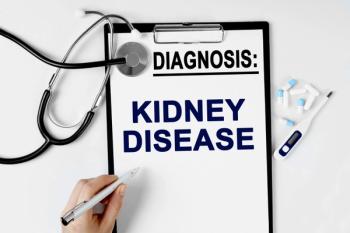
Unicycive Therapeutics secures a US patent for UNI-494, a promising treatment for chronic kidney disease, enhancing its development and partnership potential.

New research uncovers the complex tumor microenvironment in multiple myeloma, revealing unique plasma cell ecosystems that challenge existing treatment approaches.

Plozasiran significantly reduces triglyceride levels and pancreatitis risk in FCS patients, offering hope for effective treatment options.

FDA approves a new liquid formulation of losartan for hypertension treatment, enhancing accessibility for adults and children over 6 years old.

Virtual health care enhances patient experiences, integrates complex data, and ensures medication access through provider-pharmacist collaboration.

Researchers unveil a promising drug combination, arainosine and theobromine, that effectively targets influenza A M2 channels, outperforming existing treatments.

FDA approves semaglutide for treating MASH, offering new hope for affected individuals.

Oncology pharmacists are increasingly shaping patient care.

FDA approves Tonmya, the first new fibromyalgia treatment in 15 years, offering hope for effective pain relief and improved quality of life.